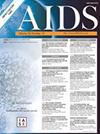接触可穿过血脑屏障的血管紧张素转换酶抑制剂与艾滋病病毒感染者患痴呆症的风险。
IF 3.4
2区 医学
Q3 IMMUNOLOGY
引用次数: 0
摘要
背景艾滋病毒感染者(PLWH)死亡率的下降揭示了非艾滋病毒相关的合并症,如神经认知障碍(如痴呆症)。方法利用人工智能平台 "基于自动图形挖掘和变换器的假设生成方法"(AGATHA)来寻找潜在药物,以便将其重新用于治疗非艾滋病毒相关性痴呆症。AGATHA 发现,可穿过血脑屏障(BBB ACEi)的血管紧张素转换酶抑制剂是减少痴呆症的目标药物。随后,我们利用退伍军人信息学和计算基础设施(VINCI)对ACE抑制剂进行了一项回顾性研究,评估了痴呆症的发病情况。研究结果显示,共有 9,419 名 PLWH 暴露于 BBB ACE 抑制剂(ACEi),8,831 名 PLWH 未暴露于该抑制剂,结果表明,暴露于 BBB ACEi 的 PLWH 痴呆症风险降低了 21.4%(单变量)和 15.2%(多变量)。基于人工智能的文献挖掘系统(AGATHA)被用来发现一种具有再利用潜力的药物。AGATHA 表明,BBB ACEi 是减少 PLWH 中痴呆症的目标。此外,我们还进行了一项回顾性研究,结果表明,接触过 BBB ACEi 的 PLWH 中发生痴呆症的人数有所减少。未来的研究需要进一步探索和了解暴露于 ACEi 的 PLWH 中痴呆症的关系。本文章由计算机程序翻译,如有差异,请以英文原文为准。
Exposure to angiotensin-converting enzyme inhibitors that cross the blood-brain barrier and the risk of dementia among People Living with HIV.
BACKGROUND
The decreased mortality of people living with HIV (PLWH) has revealed non-HIV-associated comorbidities such as neurocognitive disorders (e.g., dementia). There is an urgency to discover therapeutics to prevent or delay neurocognitive decline among PLWH.
METHODS
The artificial intelligence platform Automatic Graph-mining And Transformer based Hypothesis Generation Approach (AGATHA) was utilized to seek potential drugs to be repurposed for the management of non-HIV-associated dementia. AGATHA revealed angiotensin-converting enzyme inhibitors that cross the blood-brain barrier (BBB ACEi) as a target for decreasing dementia. Subsequently, we conducted a retrospective study evaluating incident dementia using the VA Informatics and Computing Infrastructure (VINCI) evaluating ACE inhibitors. Cox proportional hazards models were fit and hazard ratios (HR) with corresponding 95% confidence intervals (CIs) are presented.
FINDINGS
A total 9,419 PLWH exposed to an BBB ACE inhibitor (ACEi) and 8,831 PLWH unexposed demonstrated that PLWH exposed to BBB ACEi had a 21.4% (univariate) and 15.2% (multivariate) lower hazard of dementia. The propensity score matched analysis demonstrated a 14.3% lower hazard of incident dementia compared to BBB ACEi unexposed (HR 0.857, 95% CI 0.747-0.984).
INTERPRETATION
An artificial intelligence-based literature mining system (AGATHA) was utilized to uncover a medication with potential to be repurposed. AGATHA demonstrated that BBB ACEi as a target for decreasing dementia among PLWH. Additionally, we conducted a retrospective study demonstrating a decrease in incident dementia among PLWH exposed to BBB ACEi. Future research is needed to explore further and understand the relationship of dementia among PLWH exposed to ACEi.
求助全文
通过发布文献求助,成功后即可免费获取论文全文。
去求助
来源期刊

AIDS
医学-病毒学
CiteScore
5.90
自引率
5.30%
发文量
478
审稿时长
3 months
期刊介绍:
Publishing the very latest ground breaking research on HIV and AIDS. Read by all the top clinicians and researchers, AIDS has the highest impact of all AIDS-related journals. With 18 issues per year, AIDS guarantees the authoritative presentation of significant advances. The Editors, themselves noted international experts who know the demands of your work, are committed to making AIDS the most distinguished and innovative journal in the field. Submitted articles undergo a preliminary review by the editor. Some articles may be returned to authors without further consideration. Those being considered for publication will undergo further assessment and peer-review by the editors and those invited to do so from a reviewer pool.
 求助内容:
求助内容: 应助结果提醒方式:
应助结果提醒方式:


